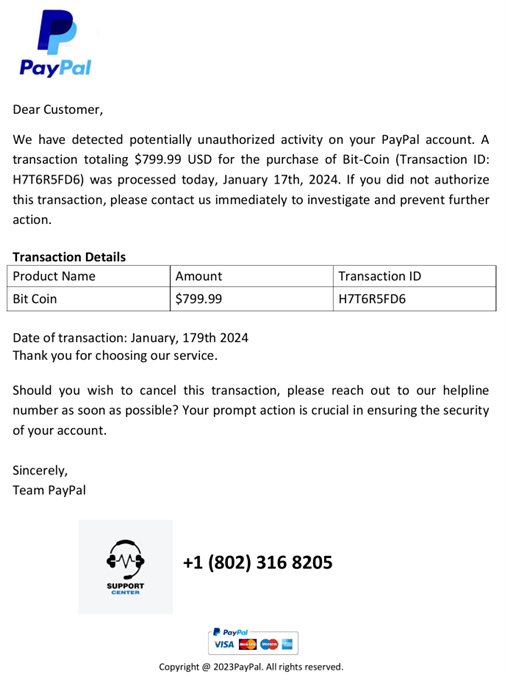
Reports of yet another fraud attempt
While this scam was easier to detect than some others, you should view every unsolicited email, every random phone call, every text message, and every pop-up with increasing suspicion.
The people who are out to scam you are getting smarter. I suspect the group behind this poor attempt will learn from their mistakes and will also improve their game. I also suspect they made money from this scam; why else would they send it to me day after day?
Let’s start with the basics:
- This email involved my PayPal account. I don’t have a PayPal account, nor was I interested in telling that to whoever sent the email.
- But if I did have a PayPal account, I like to think I would never click on any link from an unsolicited email.
- The email address of the sender is an iCloud address. I suspect the people who work at PayPal have PayPal email addresses.
- The transaction details include a product described as ‘Bit Coin.’ I think they meant to write Bitcoin. (As an aside, they spelled it Bit-Coin in the body of the email, adding a hyphen.)
- The transaction date gave me pause for thought: January 179th, 2024.
- The helpline number wasn’t the PayPal number. How do I know? I Googled PayPal, found the official website (the one with the PayPal address), and looked up the real number.
In this instance, confirming my suspicion was easy, but some attempts are far better than others. Aside from critical reading of whatever you receive, here are a few reminders:
- NEVER click on a link in an email or text. If that wasn’t clear, let’s repeat the word NEVER.
- ALWAYS look at the address of the sender. If it looks good, hover your mouse over the address. Doing so may reveal more detailed information.
- Use a pop-up blocker on every computer. NEVER click on a pop-up. If you’re not sure what to do, turn off the computer. NEVER EVER call a number on a pop-up.
- Use virus protection on your computer, such as that provided by McAfee, Norton, or Windows Defender.
- ALWAYS verify phone numbers and email addresses on official websites.
- While constantly verifying information may be time-consuming, it’s certainly less costly than becoming a victim of identify theft.


